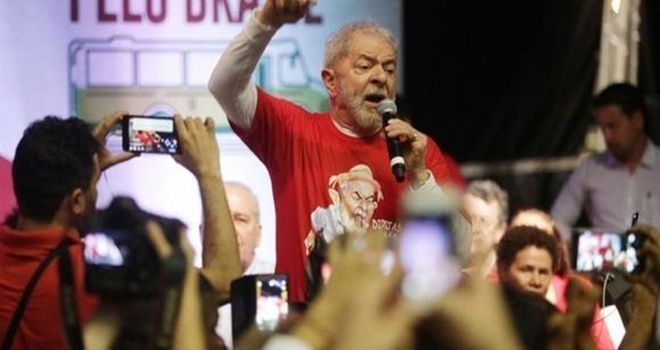As communicators and citizens of diverse countries of the world, committed to the struggle for the right to communicate and to the current democratic communication standards, we are witnessing a situation of institutional overthrow that has just taken another step forward in Brazil, in the Brazilian courts’ rejection on 5 April 2018 of the writ of habeas corpus submitted by former president Lula da Silva and in the confirmation of his imprisonment. Thanks to the mobilization of a democratic, responsible journalism, we have seen from the outside how recent events have been accompanied and supported once again by offensive media operations, in coordination with pressure from the armed forces.
From 2014’s Operation Lava Jato (Car Wash) to the Brazilian Court’s decision this week, we have witnessed how a core of media groups in Brazil, benefiting from the international relaying of their news by hegemonic media on all five continents, have promoted and exploited a situation of legal and political conflict to turn it into a media, judicial, and therefore political coup, targeting a legitimately elected government, particularly the former president Dilma Roussef and now the former president Luiz Inacio Lula da Silva.
This letter is not intended as an expression of partisan support, as communicators and communication activists, for one political figure or another. Above all, we want to express our utmost concern at the anti-democratic direction that these events constitute and at the violation of communicational citizenship that these media figures have committed in a situation of selective permissiveness and judicial complicity.
We know that this type of media action is occurring today in various parts of the world, where there is a great degree of political violence, despotism and an absence of democratic traditions. Although we have progressed in terms of institutionalization of rights, we also see that growing connectivity has increased the sophistication of strategies to manipulate public opinion. We repudiate the use of concentrated media as weapons of mass manipulation of societies.
In this regard, we wish to highlight the active commitment of Brazilian and Latin American communicators, be they free media users, bloggers, activists, citizen media or professional media, allowing the world to understand what is happening in their country. Democratic communication is an asymmetrical struggle. The struggle is long, systemic, and beautiful, because it is a struggle for all the rights. It is essential to protect these forms of citizen communication and strengthen their own voices.
In solidarity,
The Mobilization Committee of the World Forum on Free Media.
www.fmml.net






